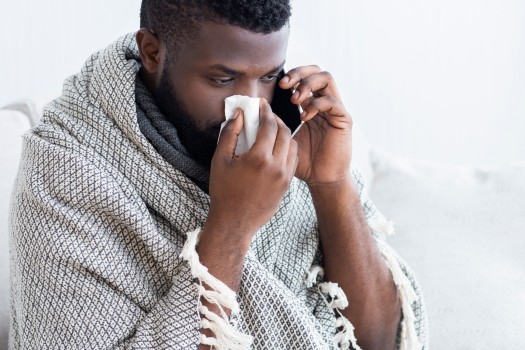Staff from black, Asian and minority ethnic backgrounds could work remotely during the Covid-19 crisis, while small practices may wish to get into ‘buddying’ arrangements with neighbouring practices if their GPs are at higher risk.
These were messages in a webinar on how to protect BAME GPs and general practice staff which took place yesterday evening, ahead of NHS England releasing a bespoke risk assessment tool for general practice.
And it comes as new data from the Office for National Statistics has shown that people from certain black, Asian and minority ethnic (BAME) groups are twice as likely to die from coronavirus than their white counterparts.
NHS England medical director for primary care Dr Nikki Kanani told GPs last night that practices should consider remote working for their staff who are at risk.
Some measures they can ‘start to consider’ include ‘looking at different working patterns, working remotely where that’s appropriate [and] using the back of office space in different ways’, she said.
She added that PPE has ‘an additional role to play in this space’ as ‘adapted PPE guidance’ is released.
Also speaking in the webinar, BMA council chair Dr Chaand Nagpaul added that PCNs should set up ‘buddying’ arrangements if doctors at small practices are at high risk.
He said: ‘If you are a small practice with just one or two partners, you may not have the same flexibility [as bigger practices]. That’s where I think within the PCN there need to be buddying arrangements so that some practices can be protected if the doctors there are at high risk.’
In some rural areas, practices with multiple sites have asked high-risk staff to work in sites where they are not exposed to ‘potentially infectious patients’, he added.
In the same online discussion, NHS England chief people officer Prerana Issar said that practices will have to have difficult conversations with their BAME staff in order to protect them, including over staff’s personal health information.
She said: ‘It is not an easy conversation to have. It is complex and it involves sharing your own health data with potentially your co-worker or your line manager – not an easy thing to do at all.’
The upcoming risk assessment tool will include whether staff have any co-morbidities such as hypertension, CVD, diabetes, chronic kidney disease and COPD, she added.
It comes as provisional analysis from the ONS, taking into account factors such as age and health conditions, found that the risk of death from coronavirus is ‘significantly higher’ for certain ethnic groups (see box).
It comes as seven GPs of BAME origin have died with Covid-19, among a total of eight GPs to die. All were male and over 50 years of age.
ONS: Black men twice as likely to die with coronavirus
The risk of death for those of black ethnicity is 1.9 times that of those of white ethnicity, taking into account ‘age and other socio-demographic characteristics and measures of self-reported health and disability at the 2011 Census’, the ONS said.
Men and women of Bangladeshi and Pakistani origin were also 1.8 and 1.6 times more likely respectively to have a Covid-19-related death than their white counterparts when these factors were taken into account, it added.
The ONS report said: ‘People of Bangladeshi and Pakistani, Indian, and mixed ethnicities also had statistically significant raised risk of death involving Covid-19 compared with those of white ethnicity.’
However, when taking only age into account, black men were 4.2 times more likely and black women 4.3 times more likely to die from coronavirus than white men and women.
The ONS added: ‘These results show that the difference between ethnic groups in Covid-19 mortality is partly a result of socio-economic disadvantage and other circumstances, but a remaining part of the difference has not yet been explained.’
The ONS analysed deaths by ethnicity in England and Wales involving Covid-19 between 2 March and 10 April.
The Health Foundation said that ‘existing social inequalities and structural discrimination’ are likely to be playing a ‘significant role’ in the findings.
Assistant director of strategic partnerships at the Health Foundation Tim Elwell-Sutton said: ‘The Government has rightly launched an inquiry to understand the effects of Covid on black and minority ethnic communities, but in identifying the underlying causes, it must consider how deep-rooted discrimination and socioeconomic disadvantage are placing some people at increased risk.’
Pulse October survey
Take our July 2025 survey to potentially win £1.000 worth of tokens

Visit Pulse Reference for details on 140 symptoms, including easily searchable symptoms and categories, offering you a free platform to check symptoms and receive potential diagnoses during consultations.












